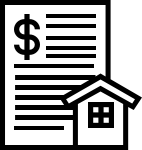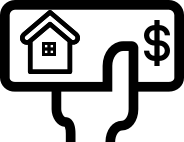Legal FAQs for Renters in Oklahoma
This page has local legal information on residential (not commercial) renters’ issues. It is not legal advice, and you should check with your local legal aid and courts for current information.
This page was last updated on Apr 29th, 2023. It was reviewed by our volunteer attorney experts.
Table Of Contents
Jump to the section that matches your situation
Emergency Protections during COVID
Are there any special protections for Oklahoma renters during the COVID-19 emergency?
Oklahoma's statewide emergency protections for renters have expired as of August 2021.
The Oklahoma Supreme Court also is now requiring landlords to certify CARES Act compliance, if they are suing a renter for eviction. They must proactively show that the eviction is not prohibited by the US national emergency protections. Check with the Oklahoma State Courts for updates.
Earlier Protections
Some Oklahoma renters had been protected through August 26, 2021 the national CDC moratorium.
Do I still have to pay rent in Oklahoma during the COVID-19 emergency?
Yes, Oklahoma renters still need to pay rent during the emergency.
You may have been protected from eviction based on nonpayment of rent through August 26, 2021 if you follow the CDC's National Eviction Moratorium's rules. But after then, the protections expired -- and you still owe all your rent.
If you cannot pay rent, take steps to protect yourself:
- Communicate with your landlord: Send a written letter or email to your landlord as soon as possible. Explain why you cannot pay the rent because of COVID-19 impact. You can also try to negotiate with your landlord to make a payment plan or get a temporary rent reduction. Get help here for drafting and mailing a letter to your landlord. You can also use this letter-writing tool here.
- Get written records of all communication: Keep copies of any letter or email you send, and any responses from the landlord. Keep receipts for any payments you make. If you make a payment plan or rent agreement, make sure to get it in writing.
- Keep proof of COVID-19's impact on you: Collect documents about your COVID-19-related employment problems, health care issues, or other issues that affect your ability to pay rent. This includes letters from your employer, doctor, insurance provider, child care provider, schools, etc.
- Check for help: If you need financial assistance for housing costs, you may be able to get help.
Can my landlord evict me in Oklahoma during the COVID-19 emergency?
Oklahoma landlords can sue tenants for eviction since the statewide and national protections ended.
If you receive a notice to quit from your landlord, or an eviction lawsuit, reach out for legal help.
- In Tulsa County, legal aid provides attorneys for housing court at no cost to all qualified tenants. Call 2-1-1 or go to this website for a referral for a free housing court attorney in Tulsa County.
Can my utilities be shut off?
Some Oklahoma renters may be protected against utility shutoffs during the emergency. It depends on where you live.
Utility bills are still due as normal, but some residents will be protected from shutoffs if they are not able to pay these bills.
Some Oklahoma utility companies are stopping all shutoffs during the emergency. Some local cities have ordered that no resident’s water can be shutoff. Check with your local government and utility provider to see if you have any protections from shutoffs.
Renters must still pay their utility bills. If you need financial assistance for utility costs, you may be able to get help.
Landlords are never allowed to shut off a renter's utilities in an attempt to force the renter out. This is illegal. Reach out to a lawyer for help if this happens to you.
What if I need repairs?
Tell your landlord about any repairs needed, particularly if they affect your health and safety.
The emergency may delay your landlord's ability to make repairs, but if they are urgent you should call your landlord to make the repairs as soon as possible.
Emergency repairs could be for problems with:
- Running water or hot water
- Heat or air-conditioning
- Stove, refrigerator, or oven
- Electricity
- Bathroom use
- Missing doors, locks, or windows
- Pests
If your landlord doesn't make the repairs promptly, send them a written letter or email about the need for emergency repairs (and keep a copy of this communication).
Reach out for legal help for additional guidance. You may also be able to file a court case to get your landlord to make the repairs.
Can I break my lease?
You may be able to break your lease if you can come to an agreement with your landlord.
Your lease is still valid despite the emergency period.
However, you can talk to your landlord to see if they will agree to let you leave early. If they agree, be sure to get the agreement in writing.
Also, you can review your lease. It may have a part that lets you end the lease early in times of financial difficulty. If your lease has this kind of part, you might be able to break the lease (in some cases penalty-free).
Find legal help to get advice for your situation.
What do I do if my landlord tries to evict me?
Contact a legal help organization to help defend yourself.
It is illegal for your landlord to evict you without first going to court and getting an eviction order. To remove you from your home, a landlord must take you to court by filing an eviction lawsuit, win the case, and getting an eviction order from the court.
Legal aid groups might be able to provide you with full representation, or other legal organizations can give you information or brief advice.
Find legal help to protect your rights.
Are eviction cases still proceeding in Oklahoma courts?
Eviction cases are still moving through Oklahoma courts. Check with your local court to get up-to-date information.
Did I have eviction protections under the CARES Act?
Renters in 3 categories have special national protections against being evicted during the Emergency Period of March 27, 2020 to July 24 or 25, 2020. These national protections add onto any state and local protections you have.
Do you fit in any of these 3 categories?



If you are a renter in one of these 3 categories, the federal CARES Act section 4024 gives you these protections. (Remember, these protections add onto any state and local protections you have)
- Your landlord cannot file a new eviction lawsuit against you for not paying your rent during the Emergency Period. They can still evict you for other behavior, like drug abuse, other criminal activities, or other lease violations.
- Your landlord cannot charge you new fees or penalties for not paying your rent during the Emergency Period.
- After the Emergency Period ends, your landlord may not be able to evict you immediately.(Different states interpret the protections ending on July 24 or 25. Check with local lawyers to see about your state). If you have not paid your rent in full during the Emergency Period, your landlord must wait until the period ends before giving you a notice to vacate. For example, they may give you a notice on July 26, and you must be allowed until at least August 25 to leave the property.
For more help on these national protections, reach out for legal and financial help here. Also, use this tool to write a letter to your landlord if you are having issues with rent or eviction.
Behind on Rent?
Who can help me with rent that I owe?
If you are behind on rent, you can get help from your local Rental Assistance program. This is a government service to help people who owe rent or utility bills.
Especially if you are behind on rent because of COVID-19 hardships, your local Rental Assistance (or Rent Relief) program can help you.
Find your local Rental Assistance program at your Get Help page here.
Am I eligible for rent relief?
Local governments set the rules about who is eligible for rent relief. Most programs focus on people who have suffered COVID-19 hardships.
You can talk to your local Rental Assistance program to learn their eligibility rules.
You may have to show your household income, or if you are on other benefits programs like SNAP.
You may also have to show that you are at risk of homelessness or eviction if you don't get rental assistance.
Check with your local Rental Assistance program to see if you are eligible.
Does immigration status matter for rent relief?
Many local Rental Assistance programs are open to everyone, regardless of immigration status. Many programs do not even ask about immigration status.
Check with your local Rental Assistance program to make sure about eligibility rules and immigration.
Can a landlord apply for their renter, to get rental assistance?
Most Rental Assistance programs let landlords apply.
Either a renter or a landlord can start the application.
The landlord will have to fill in as much information they have about the amount of money needed, and the eligibility for the program. The tenant may have to fill in the rest of the information.
Check with your local Rental Assistance program about the steps to follow to apply for rent relief.
Get Help From Local Groups
Find Local Legal Help
Find legal groups that can help you with housing problems, landlords, roommates, Section 8, domestic violence, discrimination, and more.
Find Legal ServicesFind Financial Assistance for Housing Costs
Find groups that can help you pay the rent, cover utility costs, and get other housing-related assistance.
Find Financial HelpFind Other Services to Help You
Find help with other problems, like domestic violence, health coverage, food benefits, mental health, and other issues.
Find Other ServicesState information is taken from these sources:Oklahoma State Court OrdersPrinceton Eviction Lab's COVID Policy ScorecardsColumbia Law School COVID-19 Eviction Moratoria analysisEnergy and Policy Institute Utility Disconnect TrackerLegal Aid Services of Oklahoma
Don’t see your question here?
Ask it using this form, and we may add it to our FAQ list.